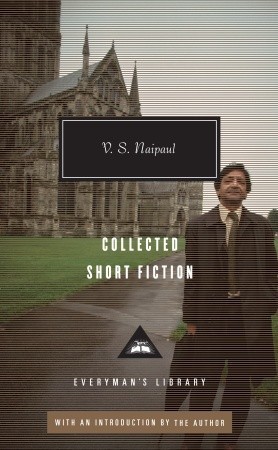
For the first time: the Nobel Prize winner’s stunning short fiction collected in one volume, with an introduction by the author. Over the course of his distinguished career, V. S. Naipaul has written a remarkable array of short fiction that moves from Trinidad to London to Africa. Here are the stories from his Somerset Maugham Award–winning Miguel Street (1959), in which he takes us into a derelict corner of Trinidad’s capital to meet, among others, Man-Man, who goes from running for public office to staging his own crucifixion. The tales in A Flag on the Island (1967), meanwhile, roam from a Chinese bakery in Trinidad to a rooming house in London. And in the celebrated title story from the Booker Prize– winning In a Free State (1971), an English couple traveling in an unnamed African country discover, under a veneer of civilization, a landscape of squalor and ethnic bloodletting. No writer has rendered our postcolonial world more acutely or prophetically than V. S. Naipaul, or given its upheavals such a hauntingly human face.
Author

Naipaul was born and raised in Trinidad, to which his grandfathers had emigrated from India as indentured servants. He is known for the wistfully comic early novels of Trinidad, the bleaker novels of a wider world remade by the passage of peoples, and the vigilant chronicles of his life and travels, all written in characteristic, widely admired, prose. At 17, he won a Trinidad Government scholarship to study abroad. In the introduction to the 20th-anniversary edition of A House for Mr. Biswas, he reflected that the scholarship would have allowed him to study any subject at any institution of higher learning in the British Commonwealth, but that he chose to go to Oxford to do a simple degree in English. He went, he wrote, "in order at last to write...." In August 1950, Naipaul boarded a Pan Am flight to New York, continuing the next day by boat to London. 50 years later, Sir Vidiadhar Surajprasad "V. S." Naipaul was awarded the 2001 Nobel Prize in Literature "for having united perceptive narrative and incorruptible scrutiny in works that compel us to see the presence of suppressed histories."